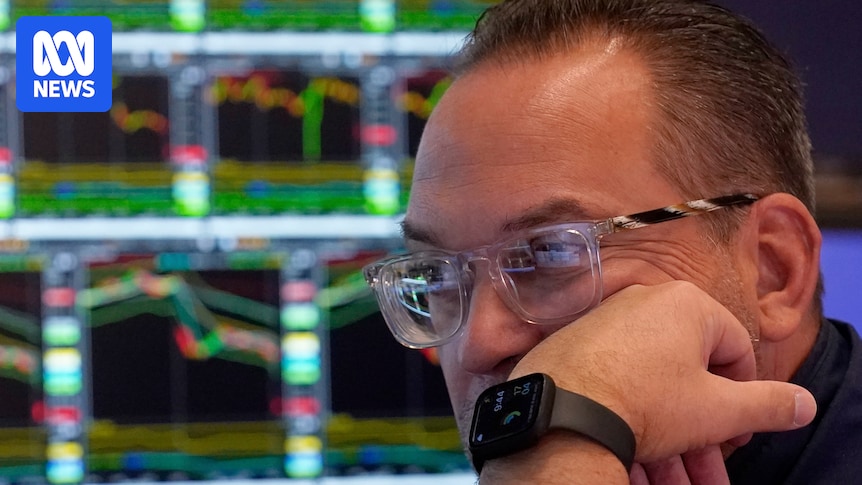11m agoTue 4 Nov 2025 at 9:06pm
Norway’s sovereign wealth fund to vote against Musk’s Tesla pay deal
Norway’s sovereign wealth fund is the seventh largest Tesla shareholder, and the biggest to so far indicate that it will vote against a share-based incentive package for Elon Musk that could end up being worth more than a trillion dollars.
However, Musk is allowed to vote his 13.5% stake in Tesla in favour of the deal and some other large institutional shareholders are backing it, meaning it is likely to get up at a vote on November 6.
23m agoTue 4 Nov 2025 at 8:54pmUS banks are hitting up the New York Fed for cash in record amounts
A nice piece of digging from my colleague David Taylor, who has keeping his high on the New York Federal Reserve’s “repo” operations.
This little known (outside of banking circles) facility is provided by the Fed to help banks cover short-term shortfalls in liquidity — that is, in layman’s terms, temporary cash shortages.
Last Friday, US banks received a record $US50 billion in repo funding, pushing short-term interest rates temporarily well above the Fed’s 3.75-4% target.
It must be noted that this particular repo facility was only established in 2021, so we’re talking about less than five years of data.
David yesterday asked RBA governor Michele Bullock about whether she was concerned about stresses in the US financial system.
She reckons the Fed is on top of it.
“I don’t think there will be a credit crunch because I think that’s exactly what the Fed is trying to avoid.”
“The Fed have got themselves, as I think [Federal Reserve chair] Jay [Powell] set out, to a position now where they think their reserves are about as low as they can go without introducing difficulties in the money markets for banks trying to get liquidity.
“This is obviously part of their response to that.”
Ironically, as Bullock outlined above, any emerging credit crunch appears to have been triggered by the Fed, which has been taking money out of the financial system by allowing the bonds it owns to mature, rather than rolling them over, in a process known as quantitative tightening.
Last week, the Fed announced it would stop quantitative tightening at the start of December.
39m agoTue 4 Nov 2025 at 8:38pm
Wall of worry sends Wall Street lower
It’s always nice to see the pros back up your initial take on things.
NAB’s morning note just landed, and the bank’s head of FX strategy Ray Attrill agrees there was no single obvious reason behind the selling on Wall Street overnight.
“There is no obvious catalyst for the tech-sector led sell-off in US equities, though the 24-hour business news channels have been quick to pounce of comments from several CEOs at a global investment summit yesterday, including from Goldman Sachs, Morgan Stanley and Capital group, all warning of a pullback in equities on valuation concerns.
“More cautionary comments on Fed policy from official in the wake of last week’s FOMC meeting and warning from chair Powell that a December cut is far from a foregone conclusion is continuing to be mentioned in dispatches, as too attention to recent signs of funding stress in the lead up to the Fed announcing an end to QT, so questioning of whether liquidity will continue to be as abundant as it has been.”
Loading
But it looks like local traders don’t share the same worries — or at least don’t have a big enough tech sector to be worth worrying about — with ASX 200 futures up 0.2% to 8,831.
Maybe some overseas investors are looking to pivot a bit away from their massive investments in US big tech?
57m agoTue 4 Nov 2025 at 8:20pmUS share traders get the jitters
Good morning and welcome to another day on the markets!
The tech sector is leading a sell-off in US shares, despite relatively little news.
One of the big events was AI darling Palantir’s latest earnings report. Even though it posted record revenue, traders were clearly expecting more and its share price was down more than 9 per cent an hour before the close of trade.
Financial news services, such as Reuters, are citing old comments from Wall Street leaders, such as JP Morgan boss Jamie Dimon, as a catalyst for the market slide, but this seems a stretch.
Dimon warned last month of the heightened risk of a significant stock market correction within the next six months to two years, citing factors including geopolitical tensions and high valuations.
“To say in the next 12 to 24 months that we might have a 10% to 20% correction is like, so what?” Thomas Martin, senior portfolio manager at GLOBALT in Atlanta, told Reuters.
“Markets have corrections all the time. It’s a good thing for the market to have corrections, and it doesn’t mean that it won’t recover.
“It’s not like it’s going to go down 10% and stay down. You’ve got to have down days.”
Today is down 1.2% on the benchmark S&P 500 index, and 1.9% on the Nasdaq with less than an hour of trade left.
Loading
My colleague Ian Verrender yesterday wrote a very good analysis of some of the warning signs flashing for US stocks.


